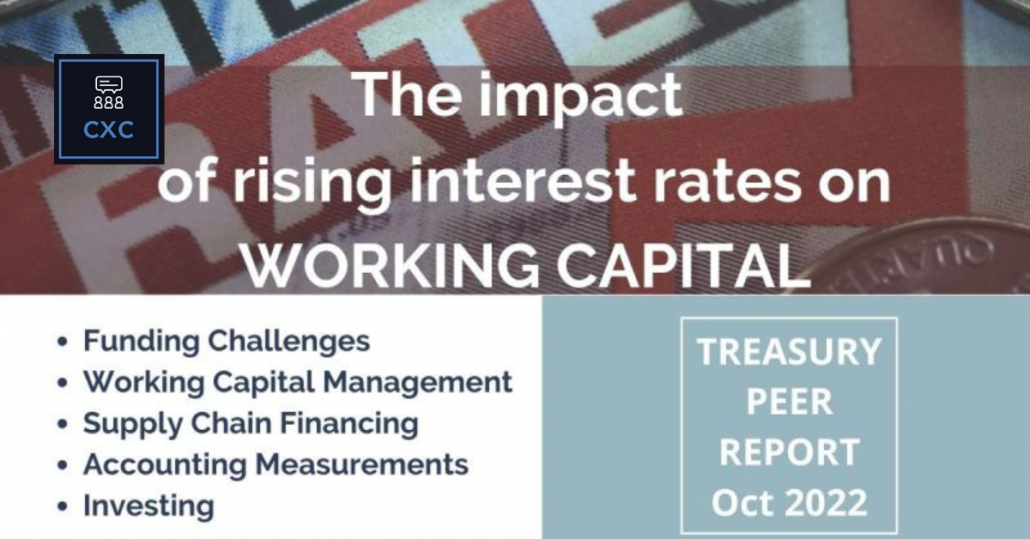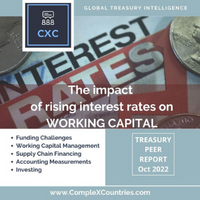The Impact of Rising Interest Rates on Working Capital
07-11-2022 | treasuryXL | ComplexCountries | LinkedIn |
No apologies for the second report on working capital and interest rate rises in a short period: we are seeing significant changes in the business environment, and treasurers are being challenged.

This call focused primarily on the higher interest rate environment. One participant was mostly concerned about how to invest excess cash – the others are grappling with rapidly increasing working capital, driven by the need to keep bigger buffers, due to COVID and the Russia/Ukraine war, and the long delays in logistics circuits.
Funding challenges:
- One participant manages treasury for South America, where there have been significant rises in interest rates, and, in some countries, funding shortages, with banks unable to provide cash and prioritising local companies. The challenges have been manageable, and they have not had to resort to drawing down all their lines to make sure they are available. This behaviour, which is akin to the rush on toilet paper in supermarkets, has been an issue in many markets, including more developed ones. However, there has been some, limited, pre-funding around significant events.
- This has led to an increase in the number of banks in the funding panel.
- One participant prefers their subsidiaries to fund themselves locally – but the cost of higher interest rates (for example, 35% in Turkey) is dissuasive, even if, economically, they are significantly below the inflation rate (>80%).
- There is an increased focus on being more efficient in the use of cash within the company, so more pressure on cross-border pooling, accessing trapped cash, intercompany netting, etc.
- Some participants are using the situation to selectively get higher discounts for pre-paying suppliers: this can be an effective way to increase the return on cash
- Generally, the participants are at the point where these challenges cause additional work, but none of them is particularly serious.
Working Capital Management
- Typically, treasurers have to fund working capital, but they do not manage it.
- In all cases, there is a dialogue with the business about how much working capital the business can support, and how it can be reduced.
- Higher interest rates are resulting in increased expense. Depending on the company, this may, or may not, be reflected in the measurements of the business units.
- The participants all agreed with the business need to hold more inventory, but a dialogue is required to make sure this doesn’t get out of control. One participant works with the business on resisting calls to change payment terms, while another helps arrange pre-funding for suppliers, when needed.











